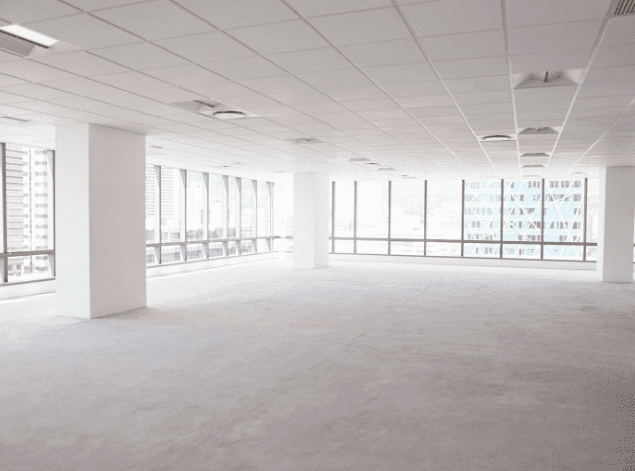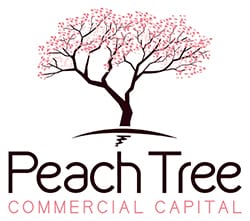Real Estate Financing in Atlanta, GA and Nationwide
We offer long and short-term real estate financing in Atlanta, GA and nationwide options including acquisition, construction and development, and permanent. Our selection supports business owners who are looking to purchase new property, develop land, or fix and flip property for a profit. Our real estate financing choices vary from 1-30 years in length, with affordable rates.
Construction Loans
We also offer short-term construction loans, which are typically 3 years in length, to finance clients’ development projects. These loans are secured by a mortgage and may be used to cover the cost of development and building construction. Funds are disbursed as needed, or as parts of the construction project are completed; disbursement may also occur per a prearranged schedule. Permanent financing is typically arranged before the construction loan is disbursed.
Our construction loans are available for the construction of new facilities or to modernize, renovate, or convert existing facilities. Funds can also be used for the purchase of fixed assets such as interior or exterior improvements; including owner-occupied buildings, street improvements, utilities, parking lot construction or repair and landscaping. We offer options with low APRs, and easy repayment plans, making our short-term construction loans perfect for many businesses.

Development Loans
Development loans are typically short-term, 1 to 3 years in length, and are used for the development of land including things like; construction of buildings, excavation work, running electrical lines, storm sewers, and roads. Development loans typically require that the property is used as collateral for the loan until it is sold, or can financially support permanent financing.
Unlike a construction loan in which funding is used for building improvements only, a development loan may be used before there are any buildings on the land. Our development loans consist of up to 65% Loan to Value, and low APR, potentially making them the most desirable financing option for businesses looking to fund development projects. Typically, proof of past projects and experience will be required for approval.
Permanent Real Estate Loans
In real estate, permanent financing is obtained after the completion of construction, usually to repay short-term construction loans. Our permanent loans are long-term, ranging from 15-30 years in length, and are used for financing fixed assets like real estate.
Funds can be used to repay construction loans, finance property acquisition, or to refinance existing debt. Permanent financing is also known as a permanent mortgage, and with a qualifying credit score, and Loan to Value ratio up to 85%, business owners will be approved for funding. Applicants will need to provide DOT, and a clear title to qualify for permanent financing.

Hard Money Loans
Our hard money loans are a great option for funding when a business’s credit score is less than desirable, they have been denied a loan in the past, or they want a lower interest rate or better terms than were offered with an unsecured loan.
How does hard money lending work? Instead of using credit history as collateral, some type of physical property (asset) is typically used to ensure repayment. The definition of hard money lenders is often a private or nontraditional lender that provides hard loans leveraged against a high value asset such as real estate, high value equipment, vehicles or land. Any valuable tangible asset can be evaluated for a potential hard money loan.
Traditional banks do not offer this type of loan which can make it even more difficult to obtain. Our hard money loan rates vary depending on the size and scope of the loan needed and can vary anywhere between 9% to 18%. Applicants will need a 65% – 75% Loan to Value ratio for approval. Hard money financing is typically more desirable and attainable than a traditional loan for businesses who do not meet the criteria for bank loans or that have a lower credit score.
An example of a hard money loan is a business that wants to fund development of a new product, but can’t prove the market. The borrower could offer a piece of investment real estate that they own as collateral for the funds. You may hear about a “collateralized loan” which is another way of saying that property was offered to secure the funds provided by the lender.
Fix and Flip Loans
Our fix and flip loans allows real estate investors to acquire, improve, and resell a property for profit with potentially little to no money out of pocket. Typical fix and flip loans will fund up to 100% of the purchase, and repair price, so long as the loan amount is 70% or less than the appraised after repair value (ARV).
Funding is most often used for the purchase of real property, repairs, contractor fees, listing and broker fees, and other property investment facets. These short-term loans are typically repaid with proceeds from the sale of renovated properties and are usually 1-12 months in length. Our fix and flip loans are readily available to businesses with 2 or more years of experience in the industry.

Bridge Loans
Most commonly known as a bridge loan, these short term asset based loans are also known as a “caveat loan,” and less often, as a swing loan. The definition of a bridge loan is a short-term loan typically repaid over 3 years with interest only payments during the term and a balloon payment at the end. Business investors may use these loans to act quickly on a property or high value asset while waiting for long-term financing to come through.
To provide an example of a bridge loan, suppose a retailer owns a location on a classic main street, but wants to open a second location in a new development that offers mixed use properties for sale. The business owner could take a bridge loan utilizing their current building as collateral. During the three year term of the loan they would pay interest only, saving money necessary to purchase goods on hand, market the new location and pay employees.
As cash flow is established, the owner can refinance into long-term financing, owning two locations outright, and maybe even having apartments above the second location to sublet to renters. If instead of owning two properties, the business owner simply wants to move the business, that’s an even easier and more traditional example of bridge financing for real estate. The loan is leveraged against the first property, allowing the owner to move the business now. The owner then pays interest only until the previous location is sold, then uses the funds to pay off the bridge loan.
We provide bridge funding options to businesses who are applying for long-term loans so that they can avoid a delay in operations. With low APR, a bridge loan is typically approved for seasoned businesses with experience and a comprehensive portfolio.
Real Estate Line of Credit
Real Estate Lines of Credit can provide real estate investors with a financing option that allows them to tap into a property’s equity. This can be an excellent resource because real estate lines of credit can be drawn on multiple times, like a credit card. The benefits of a real estate backed business line of credit include a much lower interest rate and a much more broad use of funds, including payroll. Another name for this type of financing is a “business equity” or “commercial equity line of credit.” This definition is much broader in that a business can utilize more than real estate to collateralize a commercial equity line of credit.
Real estate investors have an easy way to source flexible financing. Those investors with multiple investment properties and a robust portfolio of properties can leverage a real estate portfolio line of credit to fund property upgrades, add amenities, promote their properties and create the kind of buzz that results in premium per square foot pricing and sought after locations.

Financing an Investment Property
Finding the best loan to purchase investment property can differ greatly depending on your situation and what you are looking to do with it. You can finance an investment property such as residential or commercial real estate to help you create passive income. The question becomes “what is the best way to finance an investment property?”
Many investors also ask what the best loan is for investment property, but there are multiple answers to this important question. As an investor, there are several pathways to source funding for an investment property. There are bridge loans, hard money loans, portfolio loans, fix and flip funding, redevelopment financing, and even SBA owner-occupied loans, among others. Each of these has their pros and cons, and your financial choice can vary depending on the properties you want to buy and their circumstances.
How to Finance a Commercial Property
 Commercial Real Estate Financing is typically used to purchase or renovate commercial property or to refinance debt on a currently owned commercial property. To get a commercial real estate loan, most lenders will require that the property be owner-occupied which means you need to occupy at least 51% of the building, otherwise you will need to apply for an investment property loan.
Commercial Real Estate Financing is typically used to purchase or renovate commercial property or to refinance debt on a currently owned commercial property. To get a commercial real estate loan, most lenders will require that the property be owner-occupied which means you need to occupy at least 51% of the building, otherwise you will need to apply for an investment property loan.
To finance commercial real estate your business has several options, and we’ll cover some of the commercial real estate lending basics right here. If you have an excellent credit score, strong revenue with high margins, and a 20% or greater down payment, you may qualify for a Commercial Real Estate loan outright. If you are missing any of these, one opportunity to move fast is to choose a type of CRE Hard Money Loan called a “Bridge Loan.”
A Bridge Loan leverages owned equity in your current property to finance the quick purchase of a new property. Like other hard money loans, a bridge loan is short term, 1-3 years, with a balloon payment at the end. Most buyers choose this loan type because during the term it is interest only and can be converted to long-term financing at the end of the loan.
Commercial real estate finance also looks closely at the DSCR of real estate investment properties, whether those are funded by residential or commercial real estate investment loans. The Debt Service Coverage Ratio is an evaluation of the income a property generates as related to the amount of debt the property needs to pay off in a given period. If you owe $100,000 per year on a commercial property loan and the property generates $200,000 in revenue each year, you have a DSCR of 2, a suitable rate to cover the loan.
How to Finance a Real Estate Development
Many wonder how to finance a real estate development project and while you most likely will need to pledge some sort of capital, securing financing can make or break the feasibility of your real estate development problem. In many cases, what an investor needs to do is to work with Peach Tree Commercial Capital to develop a comprehensive real estate development financing model. That could mean several types of financing to fund acquisition of land, refinance existing properties into a portfolio loan and create the opportunity to fund new construction.
To fund a real estate development project or construction, a finance model that pays out on construction milestones can be extremely helpful. Your real estate project will have natural phases like laying the foundation, framing the building, completing electrical and mechanical systems, insulating, glazing and roofing, to name a few. Specific trades work on each stage, and it’s helpful to have an inspector cross check the work before funds pay out to complete the next stage. The project finance model protects the real estate investor and the lender from paying out for work that is going to have to be redone at greater expense some time in the future.
What is Recourse vs. Non Recourse financing?
Recourse in finance means that the lender can pursue additional assets of a borrower that defaults if the value of the debt surpasses the value of the collateral. Non recourse financing permits the lender to seize only the assets collateralized in the loan agreement. Recourse financing will have lower interest rates than non-recourse because the recourse guarantee means there is less risk for the lenders. In fact most banks do not even offer non recourse loans because it leaves them vulnerable to losses if their clients default on their loans and the collateral is not enough to cover the debt. When choosing a recourse vs. nonrecourse loan there are several factors for a business owner to consider, such as the risk of default, the revenue generated by the business to cover interest, the monthly payment and the term of the loan.

Phone
678-269-4020
info@peachtreecap.com
Address
Marietta, GA 30062
